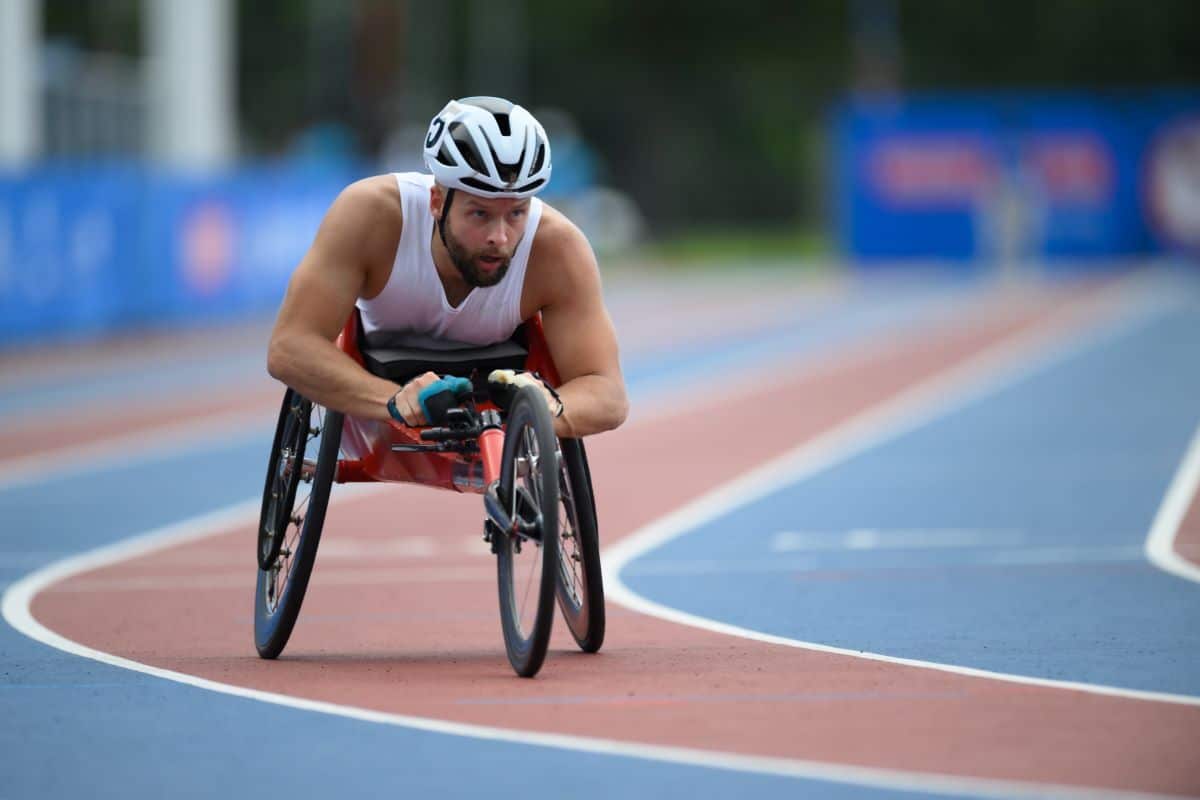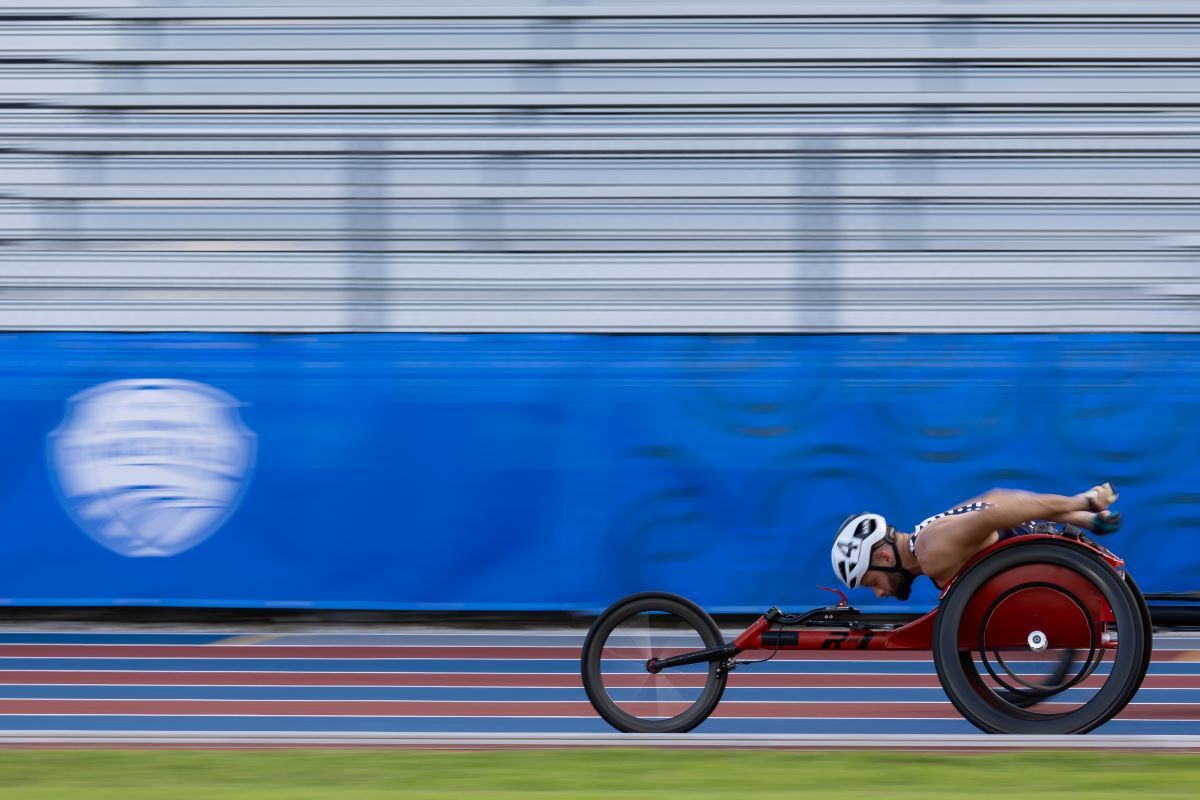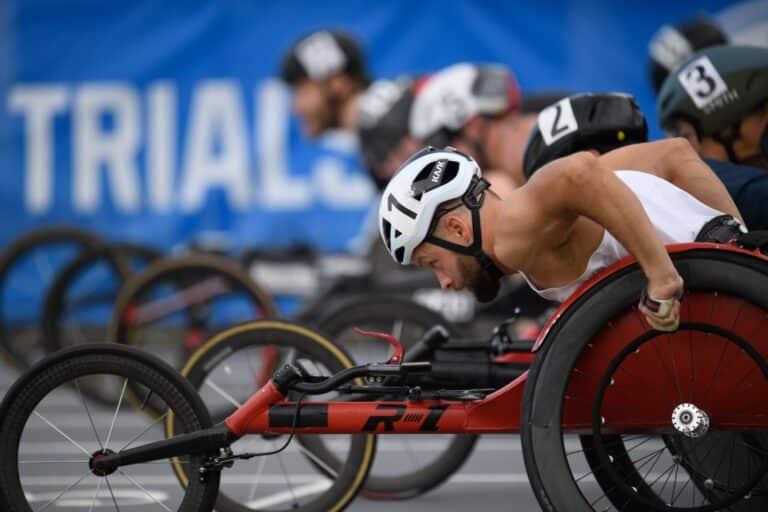CHAMPAIGN – Athletes around the world are preparing for the Paris 2024 Paralympics that kick off at the end of August. Brian Siemann, a local resident, University of Illinois Urbana-Champaign graduate, and four-time Paralympian, will compete in the 100m, 400m, 800m, 5,000m, and marathon events for the US Paralympic Track and Field Team. Morning Edition host Kimberly Schofield, who has Siemann since 2008, recently interviewed him about the upcoming games and his journey to becoming athlete.
Kimberly Schofield: You qualified for the Paris Paralympics this year. What did you have to do to qualify? What did the trials entail?
Brian Siemann: Paralympic trials is a unique event in and of itself, in that it is every member of the US track and field team vying for a spot for the Paris team. And the way that the United States does it is we receive a certain number of slots through the International Paralympic Committee. Basically, the United States will fill those spots through a ranking list and you get your spot on the ranking list by hitting a percentage of the United States A standard for track and also having a top three finish in the final of an event. So it’s a little complicated if you’re watching it for the first time and you don’t know what’s going on because sometimes there’s combined classifications as well, because you’ll have athletes with different disabilities competing in the same race but as different classes. It’s a very complicated and complex process for the average viewer.

BS: Yeah. So with wheelchair racing, there are four main classifications. So it goes through T51 to T54. T51s and T52s are typically quadriplegic athletes and depending on the level of severity, they get put either in the T51 or T52. With T53s and T54s it’s the same situation. So a T54 athlete would be an athlete who has the least level of limitations on their function. So a lot of times the way I describe it to people is that T54 athletes have abdominal control so they can use their abs, whereas a T53 athlete does not. And so I fall into the T53 category. So the way that my spinal cord injury impacts me is that I have no function below, sort of like my nipple line, and so there’s so there’s no ability for me to control my core.
KS: When did you start racing?
BS: I started racing in high school, which is later than some people. I kind of never knew that sports, like adapted sports, existed. My high school coach had asked me if I could walk or if I just had a broken leg when he saw me in a wheelchair. When I told him I use the wheelchair permanently, he asked me to join the track team, which was a little bit of a jarring conversation on your first day of high school. He had never coached an athlete with a disability before. He had seen other disabled athletes competing at the state meet, and he basically just said, ‘I’m willing to give it a try, if you are.’ And so we kind of figured it out together. My school raised money for my first racing chair. That kind of got me going. I worked out with them every day. I got connected with another team, which is where I found out about the University of Illinois, because I didn’t even know that a program like this existed, and then the rest is kind of history with me coming here, and now I work here.
KS: Can I ask how you got into the wheelchair? What is your injury?
BS: Yeah, I don’t mind talking about this. So I have a spinal cord injury, an acquired spinal cord injury. Another fun fact about me that some people know, some people don’t: I’m a quadruplet. My sisters and I were born two months premature, but we were as healthy as you could be for being two months premature. And when I was six days old, my doctor left my umbilical catheter open, which caused me to lose a third of the blood of my body, which caused spinal shock and paralyzed me. So even though I’m an acquired spinal cord injury, I’ve essentially lived my entire life using a wheelchair or another kind of mobility device to get around.
KS: Have you qualified for the Olympics before?
BS: Yes, so this is my fourth Paralympic Games. My first was in 2012 in London, and then I qualified in 2016 in Rio and 2020 for the Tokyo games that were then held in 2021.
KS: What is your training schedule like? Who do you train with? How is the University of Illinois facility helping you achieve your goals?

For A more in-depth conversation with Siemann, head to 21stshow.org.
Siemann won bronze medals in the 400m and 800m in the 2023 World Para Athletics Championships. The Paris 2024 Paralympic games run August 28th-September 8th.

